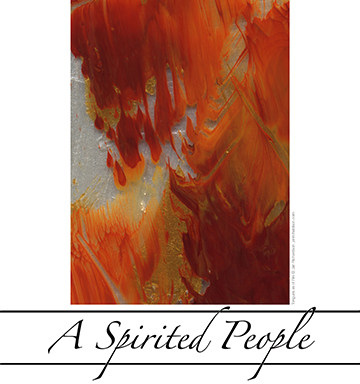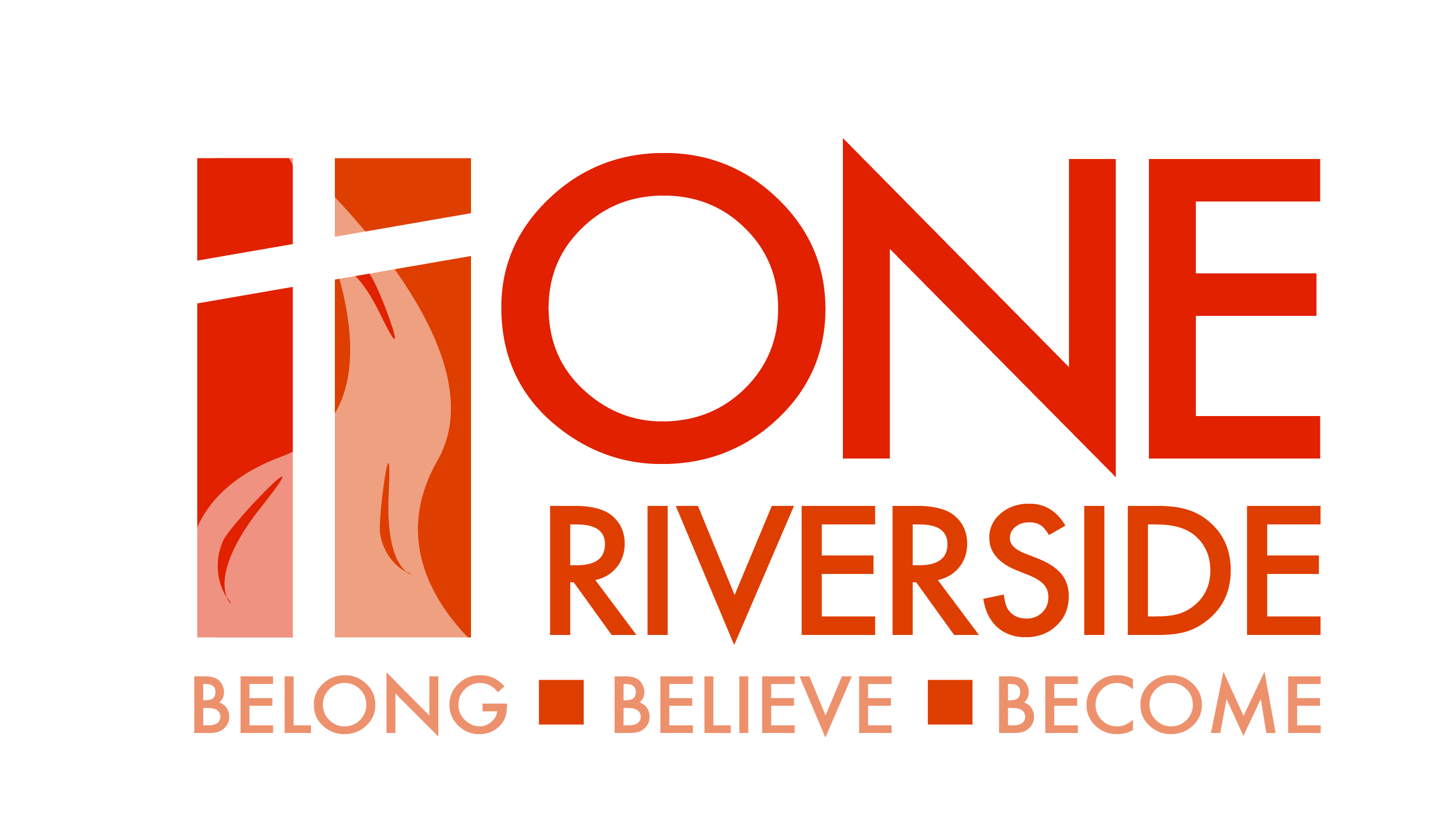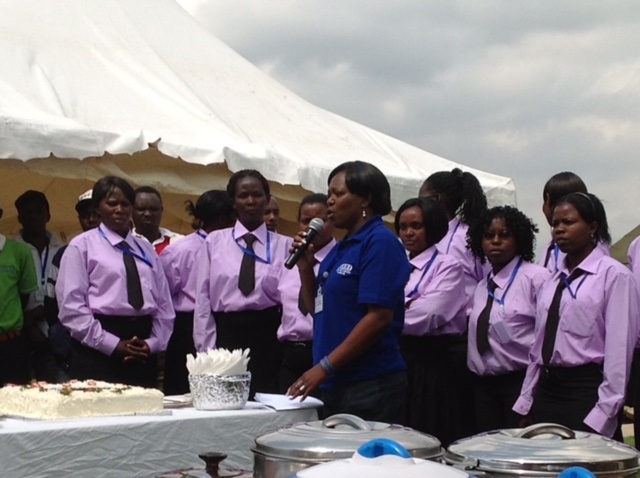Transformed by the Spirit
Today we continue in the season after Pentecost, the weeks following the birthday of the church, thinking about the work of God’s Spirit, that lively force that visited the first disciples and has visited us, inviting us out of the careful categories and safe boundaries that we have put around our belief and around our practice as the community of Christ, into the risky and unpredictable adventure of faith, of being the church together. This is not always the easiest challenge!
I think most people don’t fully appreciate how challenging it is to pastor really smart, intellectual, critical thinkers.
I’m speaking hypothetically, of course.

Used by Permission
See, there are some of us who think very rationally, who when asked to believe something for which we cannot see evidence will, well, flatly refuse. A friend described this like walking on a long pier out into the water. “I can walk along the pier, far, far out into the middle of the water. The pier will be rolling with the movement of the water, but I’ll be okay because I can hang onto the handrail and feel the wooden slats of the pier under my feet. But sometimes believing what you can’t see feels like getting to the end of the pier and having to decide whether you’ll jump off—nothing to hang onto, nothing to catch you, nothing.”
We rational-thinking types don’t like that sort of thing, you know what I mean?
So it might pain us a bit this morning to be in conversation with the Apostle Paul, whose letter to the church at Corinth was part of our reading this morning. Paul keeps insisting that God’s Spirit is there, in the Corinthian church, birthing transformation and promise. But it sure is hard to see.
Today Paul’s letter to the church at Corinth is an invitation to the Corinthian Christians to jump off the end of the pier into the cool water of possibility, to believe that though when they looked around and saw some pretty upsetting circumstances—persecution, lack of resources, painful disagreements—God’s Spirit was indeed there, diligently at work behind the scenes, transforming them individually and collectively, empowering them to become agents of healing in the world.
Now, as much as you and I might dubiously hear Paul’s recommendation to trust in the ongoing transformational work of God’s Spirit in spite of the hard things we see happening around us, the folks in Corinth who were in receipt of his letter had even more reason to be skeptical. For one thing, the Corinthian church was what you might call a “troubled church.” Serious rifts were fracturing the community; members were behaving in ways that compromised their witness to the world; they couldn’t seem to get the operation—the day to day logistics—of church to run smoothly. When they looked around at their community they were losing heart.
And, when they read these words coming from Paul, of all people, even more questions arose. The Apostle has had a really rough time. He’s been in and out of prison; he’s recently survived a shipwreck; he has a mysterious affliction he references—we don’t know what it was; and he’s trying to manage unruly churches from far away, conflicted, fledgling communities like the church at Corinth.
So when they opened a letter from Paul and read: “So we do not lose heart…even though our outer nature is wasting away, our inner nature is being renewed, transformed, day by day,” they had reason to question Paul’s state of mind, if not his sanity.
But Paul is insistent: God’s Spirit is here, doing the work of transformation, so we do not lose heart. We walk boldly to the end of the pier and jump in, believing that the recreation God has undertaken has not ended; we are not a lost cause; what can be seen is temporary, but what cannot be seen is, indeed, eternal.
This week marks one year since we decided to set out on this journey as pastor and people. Can you believe how fast a year has flown by? Because of this anniversary, I’ve been doing some review of the year we’ve had, and I’ve realized that we’ve experienced some very hard things. Recall: some very dear people have left us by death this year, marking memory with such sadness; we watched in horror as Ferguson, Staten Island, Baltimore, and many other places in our country and city exploded with a visual and visceral awareness of regular police brutality toward people of color, of the reality of mass incarceration, of the original sin of our nation—racism; we’ve endured significant change around here, shifting things that have for so long been the norm, saying goodbye to staff members we have loved and who have loved us, and welcoming new and unfamiliar faces to the life of our community; we watched the country of Nepal destroyed by an earthquake, so many suffering a world away; even our worship space has changed, with scaffolding covering the front of the nave here and ongoing construction now a part of every worship experience; we keep hearing, louder and louder, about the urgent reality of global warming and the call for people of faith to step up before it’s too late.
It might be easy to look at our world and even our community and decide that this notion of God’s Spirit in the process of transformation is too far-fetched; you’re not ready to jump off the end of that pier. Looking around you can see so much destruction, pain, conflict, change. It’s hard to believe some days that God’s Spirit is here, transforming us even in this very moment.
But, wait.
If Paul’s right, if it’s true that we are afflicted but not crushed; perplexed but not driven to despair; persecuted but not forsaken; struck down but not destroyed, as he wrote earlier in this chapter, then there must be something pulling us forward in hope, some evidence of the Spirit of God’s ongoing transformation. Maybe we’re so busy looking at all that causes pain and despair that we might be overlooking the quiet, yet persistent, work of the Spirit.
 And so, I started to think about this year gone by, searching for evidence of transformation. And here are some things I saw from where I sit: I’ve received countless letters and emails from people around the world telling me how the ministry and witness of this church has forever impacted their lives; I recall the moment in January at the Martin Luther King Day service, where Harlem’s 26th precinct head, Inspector Steven Griffith, stood in our pulpit and said that the witness of social justice by the church reminds him every day that the most important thing he can bring to his work is not in the gun holster on his hip, but in his heart; I think of the trust I’ve seen in hard conversations about change, moments when we were feeling angry and hurt, transformed by listening and commitment until we were able to move to deeper places of understanding; I see everyday when I walk into the Claremont entrance of the church, pictures of people I have come to love, being the church together; I remember this winter, when the weather was so terrible, our church coming together to partner with the city to provide shelter for our homeless friends; I recall church members thanking lay leaders who worked so hard this year to write and move us toward implementation of a socially responsible investment policy; 68 people joined our community this year, and we baptized 18…I could go on and on, listing the evidence I see of God’s Spirit well at work, transforming this community with a power that stands up to the pain and destruction we see around us and insists that it will not have the final word.
And so, I started to think about this year gone by, searching for evidence of transformation. And here are some things I saw from where I sit: I’ve received countless letters and emails from people around the world telling me how the ministry and witness of this church has forever impacted their lives; I recall the moment in January at the Martin Luther King Day service, where Harlem’s 26th precinct head, Inspector Steven Griffith, stood in our pulpit and said that the witness of social justice by the church reminds him every day that the most important thing he can bring to his work is not in the gun holster on his hip, but in his heart; I think of the trust I’ve seen in hard conversations about change, moments when we were feeling angry and hurt, transformed by listening and commitment until we were able to move to deeper places of understanding; I see everyday when I walk into the Claremont entrance of the church, pictures of people I have come to love, being the church together; I remember this winter, when the weather was so terrible, our church coming together to partner with the city to provide shelter for our homeless friends; I recall church members thanking lay leaders who worked so hard this year to write and move us toward implementation of a socially responsible investment policy; 68 people joined our community this year, and we baptized 18…I could go on and on, listing the evidence I see of God’s Spirit well at work, transforming this community with a power that stands up to the pain and destruction we see around us and insists that it will not have the final word.
God’s Spirit is here, and working hard to transform us, Riverside Church.
One of the many ways I see God’s Spirit moving us, this community, into our second year together is summed up in a theme I’ve been touting lately, One Riverside. Yesterday we held a retreat for anyone who wanted to come, a morning of dreaming about our life together in which we talked about God’s Spirit working to transform us into One Riverside, a community of faith where everyone feels they belong, where we learn in new and exciting ways how to believe, and how together we become agents of God’s healing power in this world. As I thought this week about the transformation I can see if I only stop to notice it, I remembered the story a friend recently shared with me.
My friend travels often to Kenya, East Africa for work. She told me that in Kenya, eating cake together is the way communities mark occasions. At her first time attending one of these events, she, the honored guest, was asked to cut the cake. So, being an American and not knowing about cake in Kenya, she took the knife and cut the cake as you would, you know, in 4-inch or so squared pieces, ready to be put on individual paper plates and handed out to the crowd. You know, like you do…!
She noticed as she worked her way, cutting across the cake, that folks were looking at her a little bit strange. Finally, one of thewomen in the crowd came up to her and whispered in her ear, “Here, let me help you.” And she took the knife and started cutting the cake into very tiny pieces—maybe one inch squares.

Just then, another woman got up and began to explain. “We eat cake to celebrate our community,” she said, “because it reminds us of this: think of the ingredients that go into making a cake—flour, sugar, eggs, water. By themselves these ingredients are nothing special. But when they are mixed into a batter and baked, the lightest and sweetest, most wonderful thing comes into being—a cake! So now we take the whole platter of cake and pass it around—everybody take a little square of cake from the platter. Put it in your mouth and taste that deliciousness! When you do, remember: just like the ingredients it took to make this cake, when we come together as a community, we can be transformed into something bigger and better, something sweeter than we ever imagined.”
My friend said, “It almost felt…like communion.”
We don’t have a cake here in worship today, but we do have the table of Christ, a table of bread and cup, elements that remind us of God’s presence and grace. Today, as we come to the table of Christ together, One Riverside, we taste these elements and remember that we are being transformed by the Spirit—right here—into something better, sweeter, more radically justice oriented, and much more loving than we’d ever imagined.
God’s Spirit is here, transforming us. Maybe we’ve made it out to the end of the pier lots of times, but today at the table of Christ, we come ready to believe Paul when he insists that transformation is underway. That assurance, that God is here and working on us, will take us all the way to the end of the pier, and give us the courage…to jump in.
Amen.











